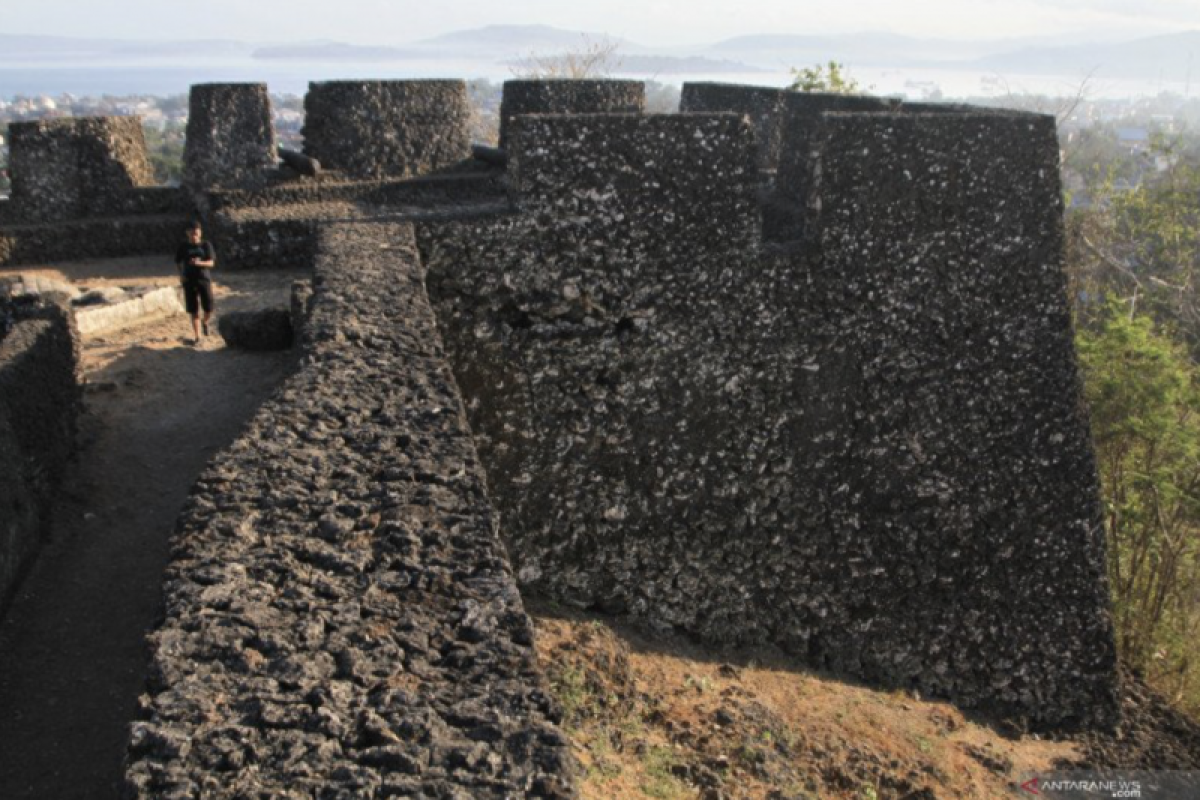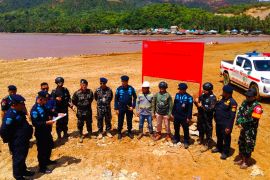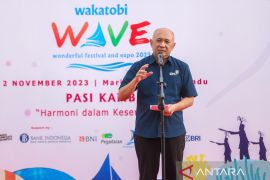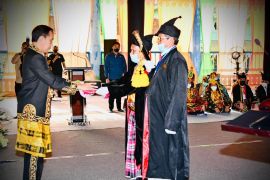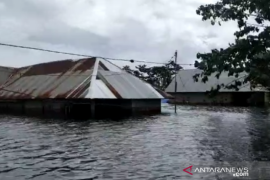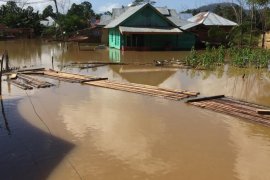From the cultural and historical perspective, the fortress remains a captivating site, especially with its strong ties to the Buton Kingdom, under which it was constructed. The city of Baubau itself used to be the center of the Kingdom.
The Buton Fortress’ vast length also makes it worthy of attention. Dubbed as the largest fortress in the country and counted among the largest in the world, the property, which measures 22.7 kilometer in length, is spread over an area of 23.375 hectares.
The fortress was deemed the world’s largest fortress by the Guinness Book of Records and the Indonesian Museum of Records in 2006.
In 2019, the fortress earned an award at the ASEAN Keraton and Customary Community Festival, held in Baubau, for the first serving of traditional food along a three-kilometer track around it.
Also known as the Wolio Fortress, the property was built in the 16th century and is home to a number of unique artifacts, including cannons — remnants of Portuguese and Dutch presence in the area.
A mosque that was built in the early 17th century is also part of the historical site, along with the sacred stone of Popaua that marked the coronation spot for past kings and sultans of Buton.
World Heritage
The inclusion of the Fortress of Buton Kingdom in the list of world heritage sites is not a mere wish of local citizens. Several movements have been launched to get the site the recognition it deserves.
Mayor of Baubau City, AS Tamrin, told ANTARA that his office has long been making efforts to get the fortress recognized as a world heritage site by the United Nations Educational, Scientific, and Cultural Organization (UNESCO).
Aside from his advocacy for the historical site, the Mayor has also initiated improvements to support the efforts, including the development of supporting infrastructure to sustain the flow of tourism and integration to transportation access.
He has also been pursuing twin city cooperation with cities in China and South Korea, under the Tourism Promotion Organization framework.
Whilst the cooperation with South Korea is concentrated more on agricultural and cultural potential, the partnership with China’s Beijing aims to connect the city with Baubau through the two fortresses — Beijing’s longest fortress in the world (the Great Wall of China) and Baubau’s largest fortress in the world, he informed.
Through the efforts of stakeholders and the treasure of history contained in the belly of the fortress, it is hoped that it can eventually be recognized as a world heritage.
Related news: Indonesian Pencak Silat martial art inscribed on UNESCO Heritage list
Related news: Padang's Silo Gunung named UNESCO world heritage site
Related news: Taste of heritage: culinary adventure in Jakarta's Old Town
Reporter: Aria Cindyara
Editor: Gusti Nur Cahya Aryani
Copyright © ANTARA 2021
